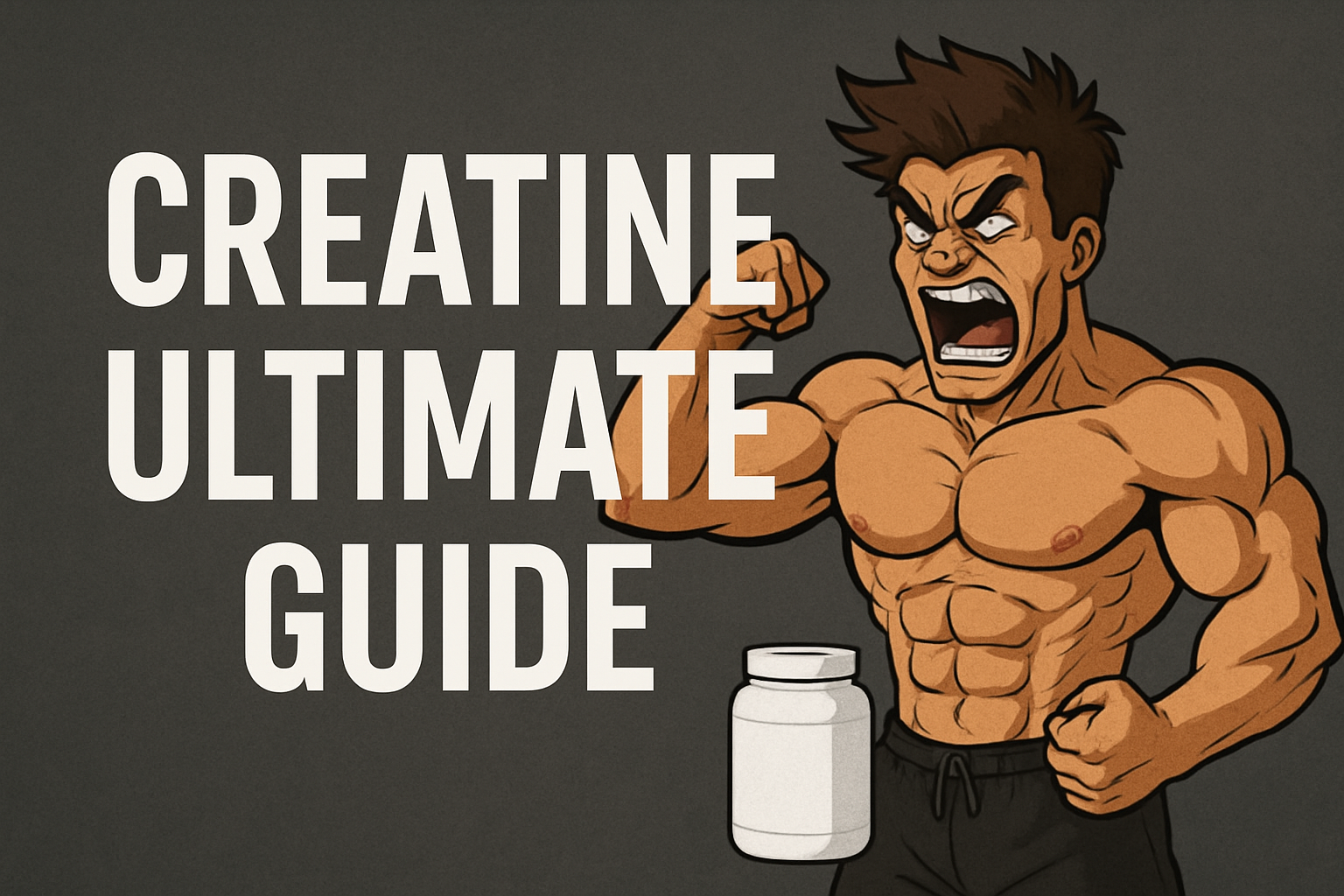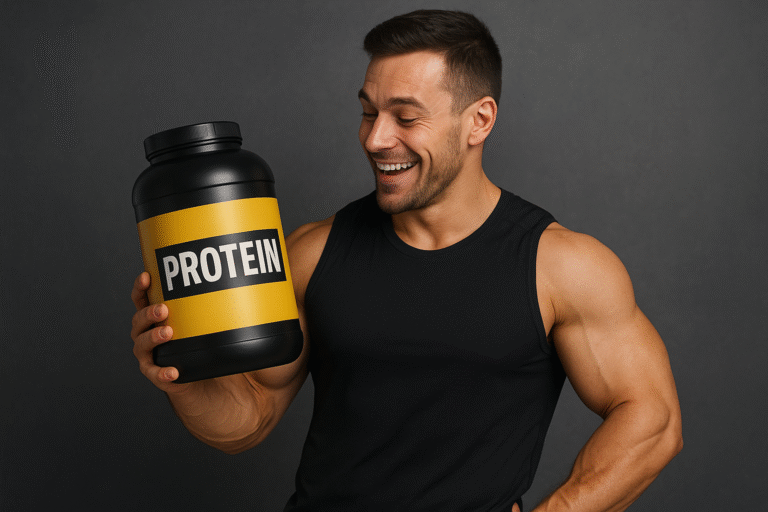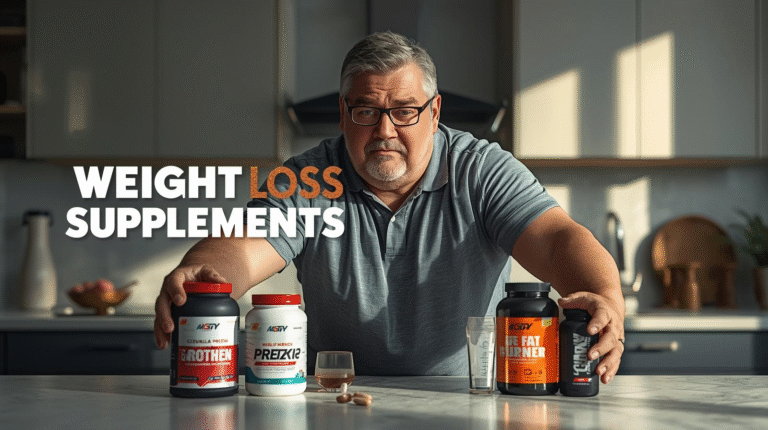🏋️♂️ Importance of Creatine in Muscle Building & How to Purchase the Best Creatine
🔥 Why Creatine is Important for Muscle Building
-
Boosts Energy (ATP Production):
-
Increases phosphocreatine stores in muscles.
-
Helps regenerate ATP (energy fuel) during intense exercise.
-
Lets you lift heavier and perform more reps.
-
-
Enhances Strength & Power:
-
5–15% increase in strength reported in studies.
-
Supports progressive overload → faster muscle gains.
-
-
Promotes Muscle Growth (Cell Volumization):
-
Pulls water into muscle cells → fuller, denser look.
-
Stimulates protein synthesis → long-term growth.

-
-
Speeds Up Recovery:
-
Reduces muscle cell damage.
-
Shortens recovery time between workouts.
-
-
Supports Brain & Overall Health:
-
Improves cognitive performance.
-
Used in clinical research for neurological support.
-
✅ Benefits Backed by Research
📌 Regular creatine users gain more muscle mass and strength than non-users.
📌 Safe for long-term use in healthy individuals.
📌 Works synergistically with weight training.
🛒 How to Choose the Right Creatine
✔️ Go For:
-
Creatine Monohydrate (Gold Standard):

-
Most researched and trusted.
-
Affordable and effective.
-
-
Micronized Creatine:
-
Smaller particles → mixes better, easier to digest.
-
-
Third-Party Tested Brands:
-
Ensures purity, safety, and no banned substances.
-
-
Unflavored Powder:
-
Mixes easily with shakes, avoids unnecessary sugars or flavors.
-
❌ Avoid:
-
Fancy blends with “explosive formulas” → overpriced.
-
Forms like creatine HCL, ester, or buffered → no proven extra benefit.
-
Brands with fillers, artificial colors, or proprietary mixes.
Everything You Need to Know About Creatine for Muscle, Strength, and Fitness
Introduction
Creatine is one of the most researched supplements in the fitness world. From gym beginners to professional athletes, creatine has become a staple for building muscle, boosting strength, and improving performance. Despite its popularity, many people still wonder: What is creatine, how does it work, and is creatine safe long-term?
This complete creatine guide answers every question—covering benefits, dosage, timing, side effects, and myths—so you can decide if creatine is right for you.
What is Creatine?
Creatine is a natural compound made from amino acids. It’s stored in your muscles and helps produce ATP (adenosine triphosphate)—the body’s main energy source during intense exercise.
While creatine is found in red meat and fish, the amount is small. Supplementing with creatine monohydrate ensures your muscles have enough stored creatine to improve strength and endurance.
How Does Creatine Work?
During high-intensity workouts, your body uses ATP for quick bursts of energy. Once ATP runs out, fatigue kicks in. Creatine increases phosphocreatine stores, allowing your body to regenerate ATP faster.
In simple terms:
-
More creatine = more ATP
-
More ATP = more strength, power, and reps
This is why creatine is effective for weightlifting, sprinting, CrossFit, and other explosive exercises.
Types of Creatine Supplements
Not all creatine forms are equal. Here are the most common types:
-
Creatine Monohydrate – The most studied, effective, and affordable form of creatine.
-
Creatine Hydrochloride (HCL) – Dissolves easily, but not proven superior.
-
Buffered Creatine – Marketed as reducing bloating, but no strong evidence.
-
Liquid Creatine – Less stable, less effective.
👉 Best choice: Stick with creatine monohydrate. It’s safe, cheap, and backed by science.
Benefits of Creatine
1. Boosts Strength and Power
Research shows creatine helps you lift heavier, train harder, and push past plateaus.
2. Supports Muscle Growth
Creatine increases muscle cell volume, improves protein synthesis, and enhances long-term muscle growth.
3. Improves Exercise Performance
From sprinting to heavy lifts, creatine provides energy for explosive movements.
4. Speeds Up Recovery
Creatine reduces muscle cell damage, soreness, and inflammation, leading to faster recovery.
5. Enhances Brain Function
Studies suggest creatine may improve memory, focus, and brain performance, especially in sleep-deprived individuals.
6. Fights Fatigue
Creatine supplementation reduces tiredness, making it useful for athletes and everyday users alike.
How to Take Creatine: Dosage & Timing
Loading Phase (Optional)
-
20g per day for 5–7 days (split into 4 x 5g servings).
-
Fills muscles with creatine quickly.
Maintenance Phase
-
3–5g daily to keep creatine levels high.
Without Loading
-
Take 3–5g daily from the start. Muscles reach saturation in 3–4 weeks.
Best Time to Take Creatine:
-
Post-workout with a protein shake or meal.
-
Consistency matters more than timing.
Creatine Myths vs. Facts
❌ Myth: Creatine damages kidneys.
✅ Fact: Studies show creatine is safe in healthy people.❌ Myth: Creatine causes dehydration.
✅ Fact: Creatine actually improves hydration inside muscles.❌ Myth: Creatine is only for bodybuilders.
✅ Fact: Creatine benefits athletes, women, and even older adults.Possible Side Effects:
-
Bloating during loading phase.
-
Mild stomach upset if overdosed.
-
Temporary water weight gain (not fat).
Who Should Take Creatine?
-
Gym-goers building muscle and strength
-
Athletes in high-intensity sports
-
Vegetarians/vegans (since their diet lacks creatine)
-
Older adults (for strength, mobility, and brain health)
Who Should Avoid Creatine?
-
People with kidney or liver issues (consult a doctor)
-
Pregnant or breastfeeding women (not enough research)
-
People who don’t exercise (little benefit)
Foods Rich in Creatine
Creatine occurs naturally in:
-
Beef
-
Salmon
-
Tuna
-
Chicken
However, you’d need several pounds of meat daily to equal 5g of creatine monohydrate. That’s why creatine supplements are easier and more effective.
FAQs About Creatine
Q1. Is creatine safe long-term?
✅ Yes, long-term studies show creatine is safe for healthy individuals.Q2. Do I need to cycle creatine?
❌ No. Consistent use works best.Q3. Can women take creatine?
✅ Absolutely. Creatine helps women gain strength and lean muscle without bulk.Q4. Should I mix creatine with carbs?
Yes, taking creatine with carbs or protein may improve absorption.
Conclusion
Creatine is one of the most effective, safe, and affordable supplements available. By increasing strength, boosting muscle growth, and improving recovery, creatine can significantly enhance your fitness journey.
👉 Stick to creatine monohydrate, take 3–5g daily, stay consistent, and fuel your body with the energy it needs to perform at its best.
Final Word: If you’re serious about strength, endurance, or muscle gains, creatine should be in your supplement stack.
-
📦 Packaging & Dosage Tips
-
Buy 500g–1kg tubs → lasts 3–5 months.
-
Dosage:
-
Loading Phase (optional): 20g/day (split into 4 doses) for 5–7 days.
-
Maintenance Phase: 3–5g/day.
-
Or just take 3–5g daily (no loading needed).
-
-
Take any time of day → consistency matters more than timing.
-
Stay hydrated → creatine pulls water into muscles.
💡 Pro Tips Before Buying
✔️ Check label: should say 100% Creatine Monohydrate.
✔️ Look for Creapure® (Germany) for highest purity.
✔️ Stick to trusted sellers → avoid counterfeits.
✔️ Compare price per serving, not just per tub.
📊 Why Creatine is Worth It
-
Safe – no proven kidney/liver risks in healthy people.
-
Affordable – one of the cheapest supplements.
-
Effective – improves both strength & size.
-
Universal – works for beginners and pros alike.
👉 Final Word: Creatine is not a magic pill but a powerful tool. Combined with proper training, nutrition, and recovery, it helps you train harder, recover faster, and build lean muscle more efficiently.











